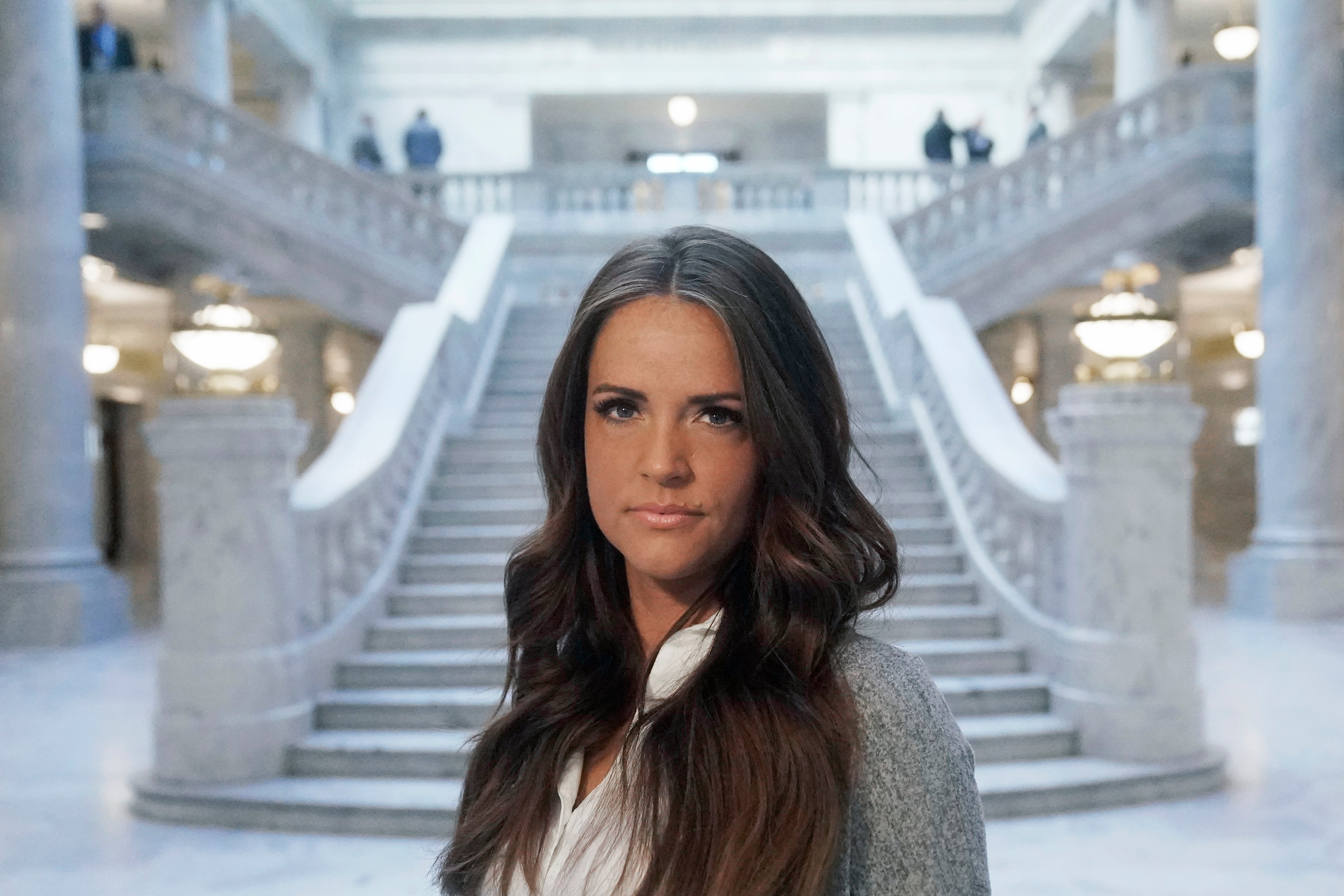Utah to scrap body measurements from transgender sports bill
The sponsor of a Utah proposal to create a commission to make eligibility decisions about transgender kids in youth sports is removing controversial provisions that list body measurements as criteria to be considered

Your support helps us to tell the story
From reproductive rights to climate change to Big Tech, The Independent is on the ground when the story is developing. Whether it's investigating the financials of Elon Musk's pro-Trump PAC or producing our latest documentary, 'The A Word', which shines a light on the American women fighting for reproductive rights, we know how important it is to parse out the facts from the messaging.
At such a critical moment in US history, we need reporters on the ground. Your donation allows us to keep sending journalists to speak to both sides of the story.
The Independent is trusted by Americans across the entire political spectrum. And unlike many other quality news outlets, we choose not to lock Americans out of our reporting and analysis with paywalls. We believe quality journalism should be available to everyone, paid for by those who can afford it.
Your support makes all the difference.Transgender kids wouldn’t be required to report certain body measurements to play sports in Utah, but their participation would still be up to a government-appointed panel of experts under a proposal moving through the Republican-controlled legislature.
Rep. Kera Birkeland, a Republican who coaches junior varsity basketball, said Wednesday that she was in the process of removing a list of physical attributes from her proposed “School Activity Eligibility Commission," which would have used criteria such as bone density, hip-to-knee ratio, and oxygen saturation to determine eligibility.
The list of physical attributes provoked an outcry from parents of transgender kids and LGBTQ advocates, who fear student-athletes would feel body-checked and targeted by the commission.
“We are still working on a couple of details. We just want to make sure that it’s legally tightened up and we address as many of the concerns that we can,” Birkeland said, adding that she expected the changes to be introduced in the next day or two.
The latest version of the bill would leave eligibility criteria up to the commission. Birkeland said it could still consider the attributes initially included as part of the bill, but would have more flexibility to tailor decision-making to individual sports, for example, using different criteria for golf versus basketball.
"They’ll still consider anything that can give them athletic advantage. They can go back and look at those things and consider hip-to-knee ratio. They can consider that the muscle mass or height ... We don’t want to pin-cushion them in and tell them, ‘Just consider these things,'" she said.
The revision came as GOP-majority legislatures throughout the U.S. debate banning transgender student-athletes from youth sports.
Birkeland is proposing creating a first-of-its-kind commission for Utah that transgender kids would be required to go before if they want to compete in leagues that correspond with their gender identity, rather than the sex listed on their birth certificates.
Birkeland, who led last year's failed push to ban transgender student-athletes from girls' sports in Utah, said the commission balanced two legitimate competing priorities: ensuring transgender kids don't feel ostracized and protecting fairness in girls' sports.
She has framed her proposal as a compromise that would allow transgender athletes to play, while still answering conservatives’ concerns that those players could have a competitive advantage in girls’ sports. She hopes, if passed, the commission won't be challenged with lawsuits like bans in other states such as Idaho.
Out of the 85,000 students who play high school sports in the state, four have gone through the Utah High School Activities Association's transgender participation eligibility review process, the association said Tuesday. Birkeland said she has heard of or observed at least eight more competing.
Though the number of athletes affected is central to the question at hand, she declined to substantiate that number, out of concern for student-athletes who may not want their gender identity to be widely publicized.
The Associated Press last year reached out to two dozen lawmakers in the more than 20 states considering similar measures and found that they could cite few instances where transgender athletes playing high school sports were causing problems.
There are no public accusations of a transgender players having competitive advantages in Utah.
LGBTQ advocates and parents of transgender student athletes recoiled at the idea that a panel would “body check” transgender student-athletes’ measurements — an idea that Birkeland said her proposal wouldn't require.
Birkeland said transgender student-athletes could submit whatever information they wanted to the proposed commission. But if they decided not to submit relevant data points, they may be asked supplemental questions about the criteria as members determine whether they can fairly compete.
Governors in South Dakota, North Dakota and Louisiana last year vetoed bills targeting transgender student-athletes amid fears of backlash from athletic organizations.
But states that passed bans haven’t faced boycotts like North Carolina did when the NCAA and NBA relocated events in response to the passage of a 2016 state law limiting which public restrooms transgender people could use.